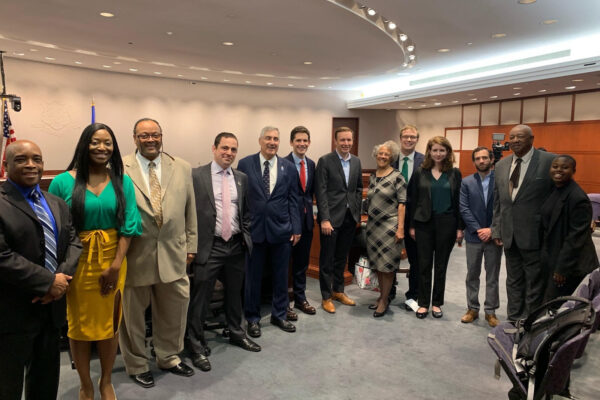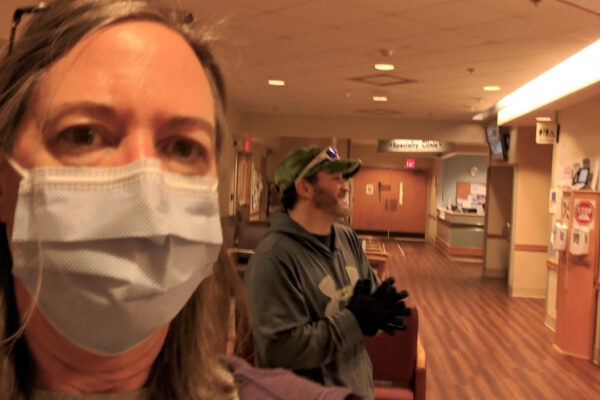Connecticut Veterans Legal Center Fights for Those Who Served
Legal advocates challenge disparities caused by the military's treatment of veterans.

Thousands of U.S. veterans walk the streets hungry, homeless and sick, yet few are aware that they are legally entitled to food, housing and medical benefits. The Connecticut Veterans Legal Center (CVLC) is waging a campaign to fill this information gap, and transform the way low-income veterans are treated.
The West Haven-based legal aid center is in the second year of the Veterans Inclusion Project. Run by CVLC staff and with active involvement from veterans, pro bono attorneys and advocates, the Inclusion Project is working to get the Department of Veterans Affairs to stop using honor/dishonor labels, which result in shaming and the exclusion of high-risk former service members from healthcare and benefits.
The CVLC and the Inclusion Project won a recent policy victory after the passage of the PANORAMA Act, included in the National Defense Authorization Act of 2021. The legislation, initially proposed by CVLC, will require The Department of Defense to report data on the race, gender, and ethnicity of students admitted to the military service academies.
“The PANORAMA Act will finally shed light on the glaring racial, ethnic, and gender disparities in service academy nominations,” said Liam Brennan, Executive Director of the Connecticut Veterans Legal Center.
The Inclusion Project grew out of CVLC’s longstanding work with veterans recovering from homelessness and mental illness who are shut out of medical care and other benefits because of unjust discharges.
In one recent case, a veteran had become addicted to pain killers after being injured on duty. After going to her officer for help and confessing what she was going through, she was discharged from the military with an "other than honorable" discharge, barring her from healthcare and other benefits for the next eight years. Attorneys with CVLC intervened, and the the VA upgraded the discharge status to “honorable for VA purposes,” granting the veteran access to full access to VA services including healthcare.

While a successful upgrade can mean lifetime medical benefits and possibly a lifetime income, very few low-income and homeless veterans or their families are aware that they are entitled to petition for one, according to CVLC. Moreover, there is a nationwide shortage of attorneys taking their cases. Researching the issue, CVLC found that of the free legal clinics at VA locations across the country, only 54 practice VA benefits cases and only 37 practice discharge upgrade cases.
To respond to this shortage, CVLC has developed a training program to deepen its bench of pro-bono attorneys around the state, and is working on the national level to raise awareness about the need.
The first medical-legal partnership with the Dept. of Veterans Affairs in the country, CVLC offers a variety of legal needs including debt collection, family law, benefits, housing and discharge upgrades. From 2018-20, its work resulted in more than $3.1 million in income increases for veterans clients, averaging over $25,000 per year for the affected clients. For every $1 the CVLC received, it obtained $20 for its clients in the form of increased income, reduced debt, housing, or healthcare.
The Foundation has supported CVLC with grants totaling $292,000 since 2010, the most recent being a three-year, $50,000 general operating support grant that ended in 2020.
Did you know?
Veterans account for approximately 12% of the homeless population, but only 7% of the population in general.
